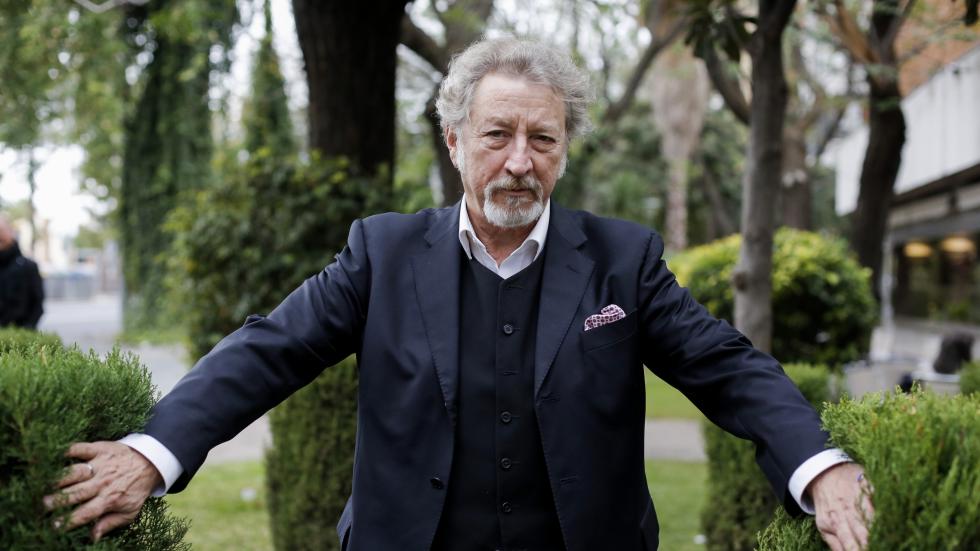THE FRENCH FILMMAKER, ONE OF THE GREAT AUTHORS OF THE CONTEMPORARY EUROPEAN CINEMA, HAS PRESENTED IN SPAIN THE PREMIERE OF 'GLORIA MUNDI' AT THE SEVILLA FESTIVAL, WHERE IT PARTICIPATES WITHIN THE OFFICIAL SECTION
THE CONTEST HAS ALSO HOSTED A MEETING WITH THE FILMMAKERS NINA DANINO, ALEXIS DELGADO, ELSA KREMSER AND LEVIN PETER IN WHICH THEY HAVE DEBATED ABOUT THE NON-FICTION OF THE XXI CENTURY
The filmmaker Robert Guédiguian, who will compete in the Official Section of the 16th Seville Festival with the film 'Gloria Mundi', has starred in a meeting held in the framework of this contest. The French director, who won the Best Actress Award in Venice for his muse ArianeAscaride’s performance in this film, has noted about his way of filming that "once I choose the shape of the film, something of me enters it. It's not something intentional, but natural."
Guédiguian, who remains faithful to the location of his stories in his hometown, narrates here the reunion of a family from Marseille after the birth of a girl and his grandfather's release from prison. "I like to collaborate with the same actors and in my city, but I always try to make the movies different from each other, so my repertoire is disparate," he said.
Although he has always worked with the same group of performers, in 'Gloria Mundi' he has counted on new faces that have managed to integrate into the original group: "We share a very similar deontology, since we work in the same way. We are like a theatre company where no matter what role you have, principal or secondary, but what is actually relevant is to achieve a cohesive result."
Guédiguian, whose film portrays the new labor conflicts and takes up key subjects of his work, such as unemployment or job precariousness, has also reflected on the "resistance" from a current point of view. "For 20 or 25 years now, strikes are no longer useless. Capitalism has become so arrogant that a great deal of effort is needed in order to achieve some achievement." He also insisted that, "although there is a dissenting counterculture and narrations, it seems that in the capitalist world the discourse of the master has become the discourse of the slave; has internalised it to the point of make it really his own."
In 'Gloria Mundi', Guédiguian charges against Macron's France in a story that moves without fuss. Gloria is the girl who just had Mathilda, and who brings back to her life the girl's grandfather, Daniel, who has just been released from prison. Daniel finds a rebuilt family threatened by precariousness and unemployment in which there seems to be no place for him. A fragile balance that the misfortune undoes and which, perhaps, opens a door for him, for solidarity is the last redoubt in the face of ruthless capitalism.
A work marked by his political and human commitment
Robert Guédiguian was born in Marseille in 1953, a very important city in his filmography, which is marked by his great political and human commitment. His most emblematic and world-famous title is 'Marius and Jeannette' (1997), 'Louis Delluc Award' and triumphant in the César Awards. He debuted in 1981 with 'Last Summer', and in his long career stand out the titles ‘L'Argent fait le bonheur’ (1993), 'À la vie, à la mort!' (1995), 'À la place du coeur' (1998), ‘À l'attaque!’ (2000), 'La ville est tranquille' (2001, EFA FIPRESCI Award), ‘Marie-Jo et ses deux amours’ (2002), 'Lady Jane' (2008) y 'Les neiges du Kilimandjaro' (2011, LUX Award).
His films have been screened at festivals such as San Sebastian, Cannes, Toronto and Berlinale, and they have a wide distribution in cinemas, and have been awarded in dates such as San Sebastian and Venice. 'Gloria Mundi', her last film, premiered at the Official Competition in Venice, where ArianeAscaride (fundamental actress in her film) won the Volpi Cup for her role in the film.







